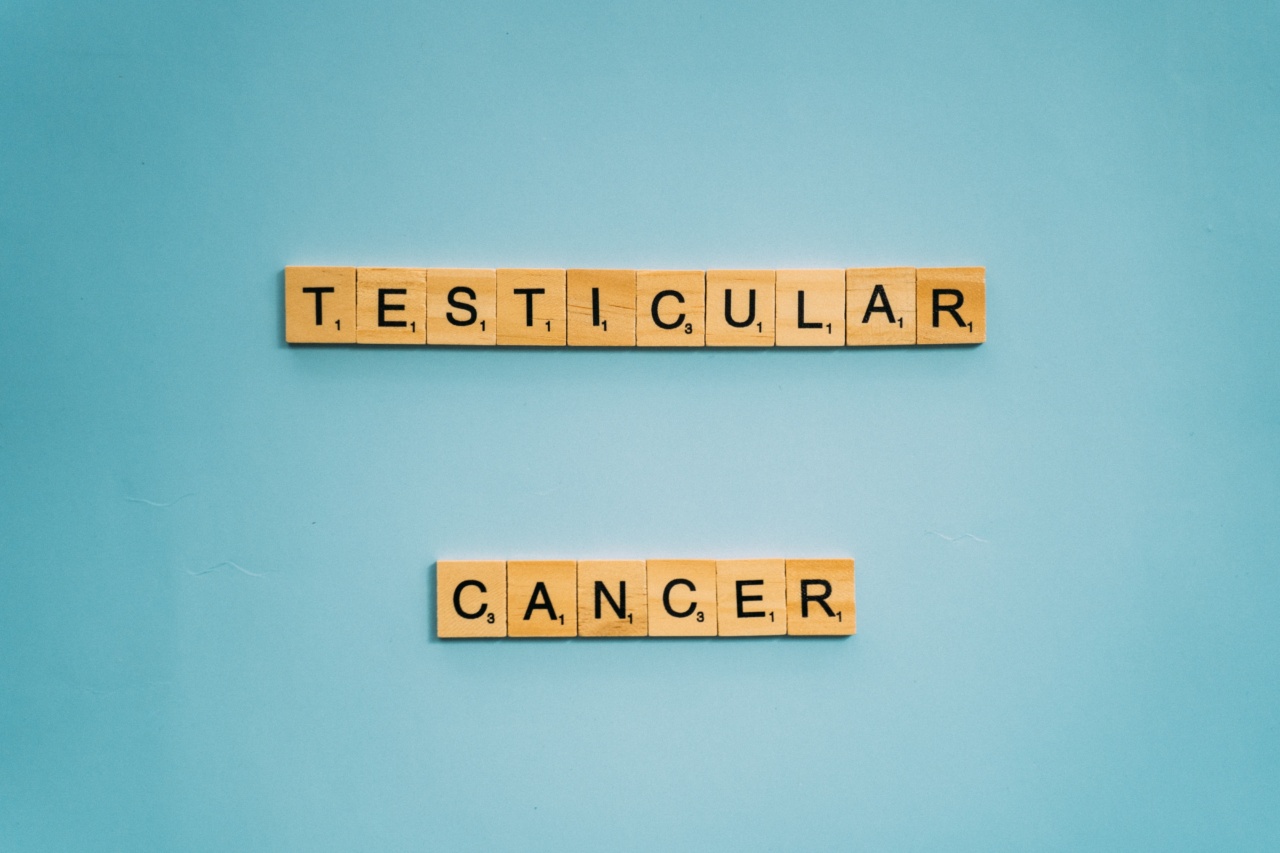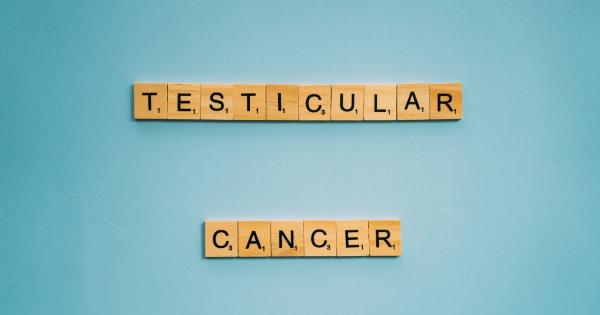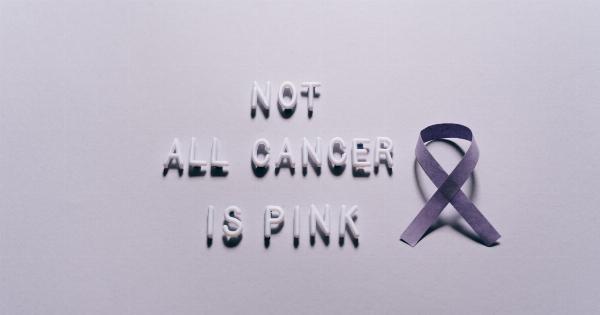Testicular cancer is a type of cancer that develops in the testicles, which are the male reproductive glands that produce semen and testosterone.
It is a relatively rare form of cancer, accounting for only 1% of all male cancers, but is the most common cancer in men between the ages of 15 and 35. While the exact cause of testicular cancer is unknown, several genetic and non-genetic factors have been linked to an increased risk of this disease.
Genetic Causes of Testicular Cancer
A growing body of evidence suggests that there are several genetic factors that may increase a man’s risk of developing testicular cancer. Some of the most common genetic causes of testicular cancer are:.
1. Family History of Testicular Cancer
Men who have a first-degree relative with testicular cancer, such as a father, brother, or son, are at an increased risk of developing this disease. The risk is even higher if the relative was diagnosed with testicular cancer at a young age.
This suggests that there may be an inherited genetic mutation that increases the risk of developing testicular cancer.
2. Genetic Mutations
Several genetic mutations have been linked to an increased risk of testicular cancer. One of the most common mutations is in the BRCA2 gene, which is also associated with an increased risk of breast, ovarian, and prostate cancers.
Mutations in other genes, such as the PALB2 and CHEK2 genes, have also been linked to an increased risk of testicular cancer.
3. Cryptorchidism
Cryptorchidism, or undescended testicle, is a condition in which one or both testicles fail to descend into the scrotum during fetal development.
This condition is a known risk factor for testicular cancer, and it is believed to be linked to certain genetic factors. Men who have a history of cryptorchidism are at an increased risk of developing testicular cancer, especially if the condition was not corrected in early childhood.
4. Klinefelter Syndrome
Klinefelter syndrome is a genetic disorder that affects males and is characterized by the presence of an extra X chromosome.
Men with Klinefelter syndrome are at an increased risk of developing testicular cancer, as well as other health problems such as infertility, breast cancer, and osteoporosis.
5. Androgen Insensitivity Syndrome
Androgen insensitivity syndrome (AIS) is a genetic disorder in which the body is unable to respond to male sex hormones, such as testosterone.
Men with AIS have an increased risk of developing testicular cancer, as well as other health problems such as infertility and male breast cancer.
Non-Genetic Factors
In addition to the genetic factors mentioned above, several non-genetic factors have been linked to an increased risk of testicular cancer. These include:.
1. Age
Testicular cancer is most common in young men between the ages of 15 and 35. However, it can occur at any age.
2. Race and Ethnicity
White men have a higher risk of developing testicular cancer than men of other races. The reason for this is not well understood.
3. HIV Infection
Men with HIV have an increased risk of developing testicular cancer, particularly those with a low CD4 count.
4. Previous Testicular Cancer
Men who have had testicular cancer in one testicle are at increased risk of developing the cancer in the other testicle.
Conclusion
While the exact cause of testicular cancer is not known, it appears that both genetic and non-genetic factors play a role in its development.
Men who have a family history of testicular cancer or who have one of the genetic mutations linked to the disease may be at an increased risk. Early diagnosis and treatment of the disease is critical for a good prognosis, so it is important for men to be aware of the risk factors and to seek medical attention if they experience any symptoms or changes in their testicles.


























